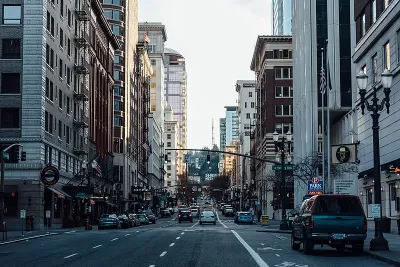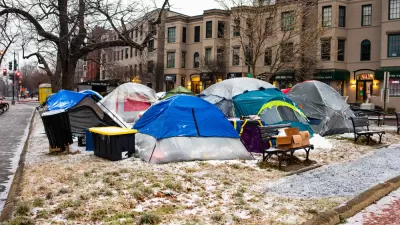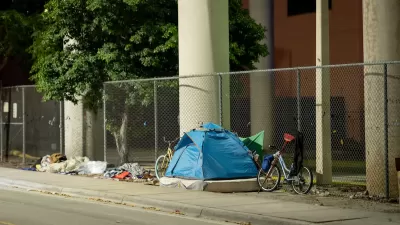The city’s plan to reduce the number of unhoused people has met with criticism, particularly for a proposal to ban encampment on public property citywide.

An article in Smart Cities Dive by Katie Pyzyk outlines next steps for Portland, Oregon’s controversial new plan to address homelessness in the city and reduce the number of people experiencing homelessness on its streets.
After following Center for Disease Control and Prevention (CDC) guidance to allow unhoused people to remain in place during the pandemic, Portland, like other cities, is taking more aggressive steps to remove unsheltered people from the street. In August, Mayor Ted Wheeler banned encampments near schools, and later proposed five resolutions approved by the city council.
In addition to banning encampments citywide, the resolutions call for “Fast-tracking the construction of 20,000 affordable housing units by 2033,” providing work opportunities, creating a diversion program to help people avoid entering the legal system, and setting budget priorities for programs that address homelessness.
Critics of the plan say the camping ban in particular skirts the root causes of homelessness in favor of improving optics, and that the proposed city-sanctioned camping zones would come with their own set of problems. According to Ann Oliva, CEO of the National Alliance to End Homelessness, “This may provide short-term political cover, but it does nothing to alleviate the core issues that most harm our communities and the people who live in them.” The American Civil Liberties Union Oregon chapter (ACLU) says the group will continue to fight encampment bans and sweeps, calling them violations of civil liberties.
FULL STORY: Portland passed a controversial homelessness mitigation plan. Here’s why and what comes next.

Rethinking Redlining
For decades we have blamed 100-year-old maps for the patterns of spatial racial inequity that persist in American cities today. An esteemed researcher says: we’ve got it all wrong.

Montreal Mall to Become 6,000 Housing Units
Place Versailles will be transformed into a mixed-use complex over the next 25 years.

Planetizen Federal Action Tracker
A weekly monitor of how Trump’s orders and actions are impacting planners and planning in America.

Connecting Communities to Nature Close to Home
Los Angeles County’s Nature in Your Neighborhood program brings free, family-friendly wellness and nature activities to local parks, making it easier for residents to enjoy and connect with the outdoors.

Palmdale’s Beloved Water Park Gets $2 Million Upgrade
To mark its 20th anniversary, DryTown Water Park has undergone major renovations, ensuring that families across the Antelope Valley continue to enjoy safe, affordable, and much-needed water-based recreation in the high desert.

Help Stop the Beetle Killing Southern California’s Oak Trees
Claifornia residents can join a volunteer “blitz” this June to help detect and map infestations of an invasive beetle that is killing thousands of oak trees across Southern California.
Urban Design for Planners 1: Software Tools
This six-course series explores essential urban design concepts using open source software and equips planners with the tools they need to participate fully in the urban design process.
Planning for Universal Design
Learn the tools for implementing Universal Design in planning regulations.
City of Camden Redevelopment Agency
City of Astoria
Transportation Research & Education Center (TREC) at Portland State University
Regional Transportation Commission of Southern Nevada
Toledo-Lucas County Plan Commissions





























